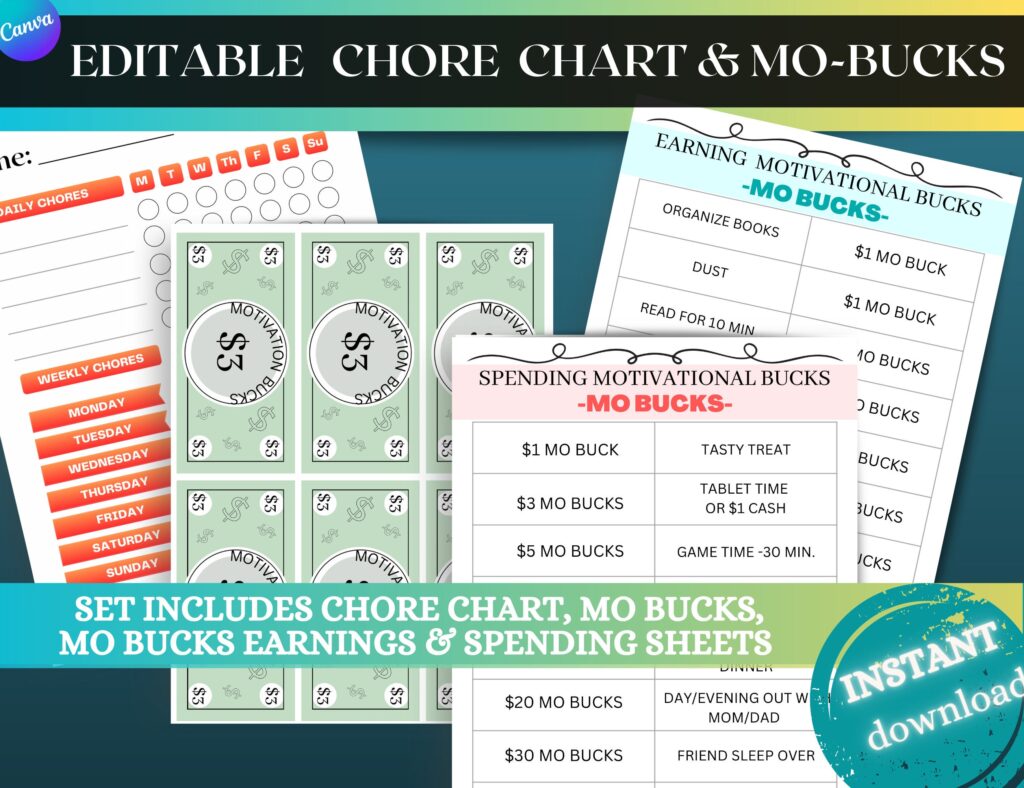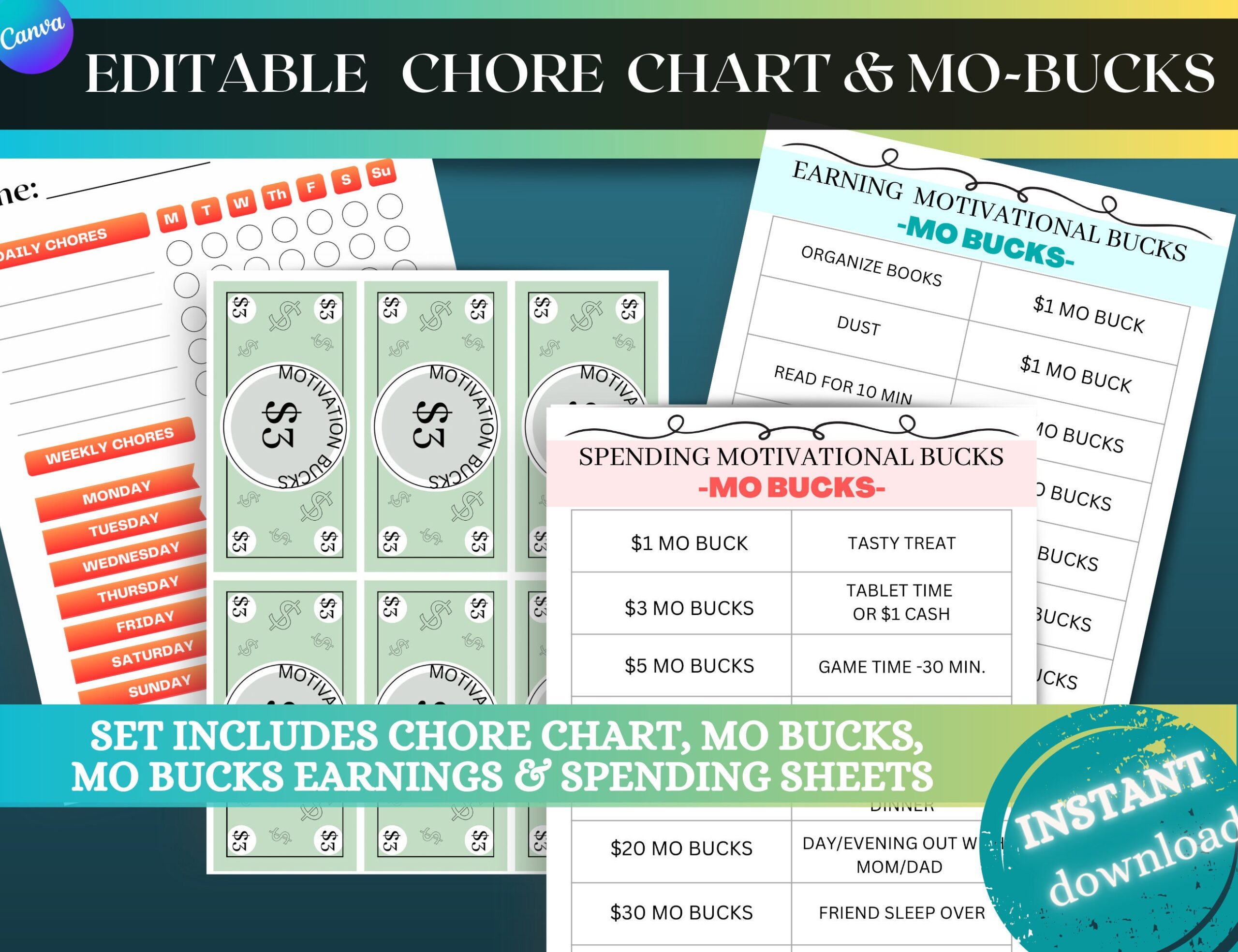
Unlocking Chore Motivation: Strategies to Tackle Household Tasks
Household chores. The very words can evoke a sense of dread, a collective groan echoing through families and roommates alike. From the mundane task of washing dishes to the seemingly endless cycle of laundry, chores are a necessary evil in maintaining a functional and comfortable living space. But what happens when motivation wanes, when the allure of the couch outweighs the responsibility of a clean kitchen? This article delves into the science and strategies behind chore motivation, providing actionable tips to transform those dreaded tasks into manageable – and perhaps even enjoyable – activities. We’ll explore the psychological factors at play, examine different motivational techniques, and offer practical advice for individuals and families seeking to conquer the chore conundrum.
Understanding the Psychology of Chore Motivation
Before diving into solutions, it’s crucial to understand why chore motivation is often so elusive. Several psychological factors contribute to this phenomenon.
- Lack of Immediate Reward: Chores rarely offer instant gratification. The benefits – a clean house, a sense of order – are often delayed and intangible.
- Perceived Monotony: Many chores are repetitive and predictable, leading to boredom and a feeling of being stuck in a rut.
- Avoidance of Discomfort: Some chores involve physical exertion or unpleasant smells, triggering a natural aversion to discomfort.
- Negative Associations: Past experiences with chores, particularly during childhood, can create negative associations that linger into adulthood.
- Feeling Overwhelmed: A large backlog of chores can feel overwhelming, leading to procrastination and inaction.
Recognizing these underlying factors is the first step in overcoming the challenge of chore motivation. By addressing these psychological barriers, we can begin to reshape our perception of chores and develop strategies to make them more palatable.
Strategies for Boosting Chore Motivation
Fortunately, a variety of strategies can be employed to enhance chore motivation. These techniques range from simple mindset shifts to more structured approaches to task management.
Gamification: Turning Chores into a Game
Gamification involves incorporating game-like elements into chore completion. This can be as simple as setting a timer and challenging yourself to beat your previous record or creating a points system with rewards. Families can use chore charts with stickers or online apps that track progress and offer virtual badges. The key is to make the process more engaging and less monotonous.
For example, you could set a timer for 15 minutes and see how much you can clean in that time. Or, award yourself points for each chore completed, and redeem those points for a small treat or activity you enjoy. This can significantly boost chore motivation.
The Power of Habit Stacking
Habit stacking involves linking a new chore to an existing habit. For example, you could make it a rule to wipe down the kitchen counters after making coffee each morning. By attaching the new chore to an already established routine, you increase the likelihood of consistent execution. This method leverages the power of habit to automate chore completion, reducing the need for conscious motivation.
Breaking Down Large Tasks
Overwhelmed by a mountain of laundry? Feeling daunted by a messy garage? Break down large tasks into smaller, more manageable steps. Instead of tackling the entire garage in one go, focus on organizing one shelf or one corner at a time. This approach makes the task seem less intimidating and provides a sense of accomplishment with each small victory. This is a critical component of maintaining chore motivation.
The Two-Minute Rule
If a chore takes less than two minutes to complete, do it immediately. This simple rule can prevent small tasks from accumulating into a larger, more daunting pile. Putting away a dish after using it, wiping up a spill immediately, or taking out the trash as you leave the house are all examples of chores that can be easily accomplished in under two minutes. Over time, these small actions can significantly reduce the overall chore burden.
Creating a Chore Schedule
A structured chore schedule can provide a sense of order and predictability, making it easier to incorporate chores into your daily or weekly routine. Allocate specific days and times for different tasks, and stick to the schedule as much as possible. A visual chore chart can be helpful, especially for families with children. Consistency is key to making a chore schedule effective.
Rewarding Yourself
Positive reinforcement can be a powerful motivator. Reward yourself after completing a particularly challenging or unpleasant chore. This could be anything from enjoying a cup of coffee to watching an episode of your favorite show. The reward doesn’t have to be extravagant; the simple act of acknowledging your accomplishment can be enough to boost chore motivation.
The Importance of a Clean and Organized Environment
A clean and organized environment can actually increase your chore motivation. Living in a cluttered and disorganized space can be draining and demotivating. By maintaining a baseline level of cleanliness and organization, you create a more pleasant and inviting environment, making it easier to tackle chores and maintain a sense of order. It’s a virtuous cycle – a clean space inspires more cleaning.
Making Chores Social
Turn chores into a social activity. Enlist the help of family members, roommates, or friends. Working together can make chores more enjoyable and less tedious. You can even turn it into a competition, challenging each other to see who can complete their assigned tasks the fastest. Socializing while cleaning can greatly improve chore motivation.
Listen to Music or Podcasts
Distract yourself from the monotony of chores by listening to music, podcasts, or audiobooks. This can make the time pass more quickly and make the task feel less burdensome. Choose something upbeat and engaging to keep your energy levels up. This is a simple yet effective way to boost chore motivation.
Mindfulness and Chore Motivation
Try approaching chores with a sense of mindfulness. Instead of focusing on the unpleasantness of the task, try to be present in the moment and appreciate the simple act of cleaning. Focus on the sensory experience – the feel of the water on your hands, the smell of the cleaning products, the satisfaction of seeing a clean surface. This mindful approach can transform chores from a dreaded obligation into a more meditative and even enjoyable experience. Focusing on the present moment can improve chore motivation.
Chore Motivation for Families: Involving Children
Involving children in household chores is essential for teaching responsibility and fostering a sense of teamwork. However, motivating children to participate can be a challenge. Here are some tips for engaging children in chores:
- Start Early: Introduce chores at a young age, starting with simple tasks like putting away toys or wiping up spills.
- Make it Fun: Turn chores into a game or competition. Use stickers, chore charts, and rewards to make the process more engaging.
- Age-Appropriate Tasks: Assign chores that are appropriate for the child’s age and abilities. Avoid tasks that are too difficult or dangerous.
- Lead by Example: Children are more likely to participate in chores if they see their parents doing the same.
- Offer Choices: Give children a choice of chores to complete, allowing them to feel more in control.
- Provide Positive Reinforcement: Praise and reward children for their efforts, even if the results aren’t perfect.
Maintaining Long-Term Chore Motivation
Boosting chore motivation is one thing; maintaining it over the long term is another. Here are some strategies for sustained success:
- Regularly Re-evaluate Your System: What worked initially might not work forever. Adapt your chore schedule and strategies as needed.
- Focus on the Benefits: Remind yourself of the positive outcomes of completing chores – a clean and organized home, a sense of accomplishment, reduced stress.
- Don’t Strive for Perfection: Aim for progress, not perfection. It’s okay to have occasional lapses in your chore routine.
- Be Kind to Yourself: Acknowledge that chores are not always enjoyable, and be patient with yourself when motivation wanes.
- Seek Support: Talk to friends, family members, or a therapist if you’re struggling with chronic procrastination or avoidance of chores.
The Science Behind Chore Motivation
Research in behavioral psychology provides insights into the underlying mechanisms of chore motivation. Studies have shown that intrinsic motivation, which arises from internal satisfaction, is more sustainable than extrinsic motivation, which relies on external rewards. Therefore, it’s important to find ways to make chores inherently more enjoyable, such as by listening to music or practicing mindfulness.
Furthermore, the concept of self-efficacy, which refers to one’s belief in their ability to succeed at a task, plays a crucial role in chore motivation. By breaking down large tasks into smaller, more manageable steps, we can increase our sense of self-efficacy and boost our confidence in our ability to complete chores successfully.
Conclusion: Embracing the Chore Challenge
Chore motivation may seem like a trivial issue, but it can have a significant impact on our overall well-being and quality of life. By understanding the psychological factors that contribute to chore aversion and implementing effective motivational strategies, we can transform chores from a dreaded obligation into a more manageable – and perhaps even enjoyable – aspect of our daily lives. Whether it’s gamification, habit stacking, or simply practicing mindfulness, there are numerous ways to unlock your chore motivation and create a cleaner, more organized, and more fulfilling living space. Remember to be patient with yourself, experiment with different techniques, and celebrate your progress along the way. With the right approach, you can conquer the chore challenge and create a home environment that supports your physical and mental well-being.
[See also: The Ultimate Guide to Home Organization]
[See also: Time Management Tips for Busy Professionals]
[See also: How to Create a Minimalist Living Space]

